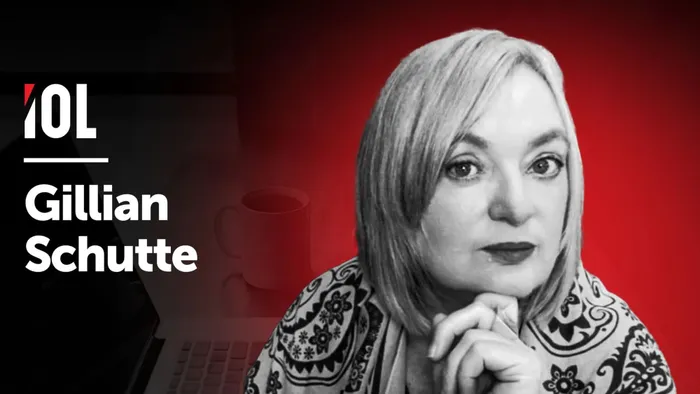
The Alabuga Start saga reveals a calculated media operation aimed at smearing Russia and undermining South Africa's foreign policy. Gillian Schutte explores the devastating impact on Black youth, as influencers lost their careers, opportunities were erased, how this media war unfolds, and its implications for African sovereignty.
Image: IOL / Ron AI
The Alabuga Start saga must be understood through the lens of imperial media warfare. It was a calculated operation to smear Russia, fracture BRICS, and discipline South Africa’s foreign policy into obedience to Western geopolitical priorities.
In its wake, three layers of harm were inflicted on South Africa’s Black youth: the influencers who promoted the programme were de-platformed, losing their income and reputations; the four South African women participating in Alabuga Start were erased from the story, their own accounts ignored or twisted; and the wider body of unemployed Black youth — already locked out of the economy by neoliberal policy — were frightened away from pursuing similar opportunities abroad.
It targeted careers, silenced voices, and deepened the climate of fear that keeps South Africa’s most marginalised in their place.
It began with a promotional initiative. A number of South African influencers were invited to Russia to promote the Alabuga Start programme.
They toured the Alabuga Special Economic Zone, met trainees, inspected accommodation and training facilities, and produced content showing opportunity, skills development, and stability. It was aspirational content set against the reality of a home economy in deep crisis.
South Africa’s official unemployment rate (Q2:2025) stands at 33.2%. For youth aged 15–34, it is 46.1% overall. Among 15–24-year-olds it soars to 62.2%, and for 25–34-year-olds it is 40.5%.
These figures are the result of decades of neoliberal restructuring — privatisation, austerity, deregulation, and trade liberalisation — which dismantled industrial capacity, hollowed out secure employment, and locked the economy into extractive dependency. Against this backdrop, a foreign work or training programme is not indulgence; it is survival.
The backlash was swift and uniform. A trafficking narrative — incubated in NATO-aligned think tanks and security-linked NGOs — entered the global news cycle via Bloomberg and Reuters.
Within hours, South African liberal media outlets reproduced the allegations almost verbatim. There was no verification, no direct testimony from those in the programme, only a synchronised echo chamber presenting conjecture as fact.
The four South African women currently in the Alabuga Start programme gave public statements from Russia after the smear campaign had already entrenched itself in South African media. Speaking in recorded video messages and interviews, they described safe accommodation, structured technical training, and the absence of coercion.
They rejected the “trafficking” label outright and questioned why their own voices were absent from the coverage dominating headlines back home.
In a healthy media environment, such first-hand testimony would be central to any investigation. Instead, their accounts were sidelined or selectively quoted to reinforce a pre-existing NATO-scripted frame.
This was not an oversight; it was the deliberate suppression of evidence that contradicted the chosen narrative. It is a textbook example of testimonial injustice — the discrediting and erasure of marginalised voices because their version of events disrupts dominant political objectives.
By removing their agency and replacing it with an imposed identity as voiceless victims, the South African liberal press and its Western partners ensured that these women could only appear in public discourse through the lens of someone else’s agenda.
This smear cannot be separated from the US–NATO confrontation with Russia in Ukraine. Since 2014, the West has fought this conflict on two fronts: militarily and in the information sphere. Africa is part of that battlefield — Russia’s partnerships in the Sahel, North Africa, and BRICS nations threaten Western economic and political dominance.
In this war, even a vocational programme like Alabuga Start becomes a target if it strengthens Russia’s image in Africa. Yet here lies the staggering hypocrisy: the very outlets that vilified these women and amplified the smear had, just months earlier, sent journalists on SAJBD-funded trips to Israel during its assault on Gaza.
Hardly a peep was made about these trips in the public domain, despite the clear ethical compromise. This silence was because they were part of a stealth agenda — one designed to bolster Israel’s image — whereas Russia’s Alabuga Start was an openly declared, visible initiative.
Critical Race Theory reveals the racial logic at work. The South African liberal press, dominated by white editorial authority and donor-aligned priorities, habitually casts the Black subject in one of two roles: victim in need of Western salvation, or dangerous agent in need of containment.
In the Alabuga smear, both roles were activated. The four women in the programme were cast as passive victims, supposedly in need of rescue from “evil Russians” and their African cohorts, while the influencers were framed as dangerous agents — human traffickers, complicit in exploitation, and a moral threat to the nation.
This dual construction erased the women’s agency and discredited the influencers’ testimonies, reproducing a colonial narrative architecture that positions Africans as either helpless wards or dangerous deviants, both requiring external control.
On August 27, 2025, just days after the smear campaign began, Cyan Boujee issued a public apology on social media, clearly in a state of shock. Her tone was subdued and defensive, a sharp contrast to the confident posts she had made from Russia.
In the days that followed, the attacks against her were vicious. Liberal media outlets repeated allegations of her complicity in “trafficking” without evidence, while social media became a site of coordinated harassment. She was branded a traitor, her character torn apart, and her TikTok account — a major source of her income — was shut down.
Cancel culture was deployed as a tool of narrative warfare, making an example of her and sending a message to other Black youth that aligning with a Russian-linked initiative could destroy a career.
By September 1, 2025, Cyan’s public stance had changed. In an interview, she adopted elements of the Western-scripted anti-Russian narrative, describing hardship and mistreatment that she had not mentioned in her earlier posts from the programme. This change came after less than a week of economic and reputational destruction. She faced the loss of her primary income stream, the collapse of sponsorship deals, and a media climate in which her only path back to visibility was to align with the dominant anti-Russian frame.
Her reversal should be read in the context of structural and economic coercion. Under the combined pressure of financial precarity, reputational annihilation, and a hostile press, she acted in a way that preserved her survival. In the logic of imperial media warfare, the strategy is to break the dissenter until they repeat the line that serves the strategic interest, and then present that repetition as validation of the original accusation.
The other influencers caught in the Alabuga crossfire were no less subjected to the machinery of reputational annihilation. They were publicly named, hounded across social media, and had their income streams choked off through coordinated platform takedowns and cancelled brand deals.
The smear extended beyond the digital sphere into mainstream talk shows, with the MacG Podcast episode becoming one of the few spaces where their voices were aired without heavy editorial censorship. Even there, the segment was quickly overshadowed in the liberal press by the dominant trafficking narrative, which framed the conversation as a defensive posture rather than a legitimate counter-testimony.
These influencers were not simply defending themselves against individual attacks — they were resisting an entire architecture of narrative control, backed by the resources of donor-aligned newsrooms, state security echo chambers, and global tech platforms acting in synchrony. What they were up against was not just public opinion, but an imperial information operation designed to make dissent both economically and socially impossible.
The Alabuga smear was not an accident of bad reporting — it was a calculated act of political sabotage, executed through the liberal media’s service to Western imperial interests. It destroyed livelihoods, shattered reputations, and sent a clear message to South Africa’s unemployed Black youth: align yourself with any project outside the orbit of Washington, London, or Brussels and you will be crushed.
This is how liberalism functions in the colonies — not as a guarantor of freedom, but as the velvet glove over the iron fist of empire.
Every progressive South African should treat this for what it is — an attack on African sovereignty. The targets were not only four women and a group of influencers; the target was the principle that Africans can determine their own alliances, seek work beyond the borders of neoliberal collapse, and engage with partners like Russia without fear of media lynching.
Liberal media in South Africa — donor-fed and editorially policed by Western think tanks — have acted here as the propaganda wing of NATO, dressing up their political service in the language of “protection” and “human rights.”
This demands a coordinated fightback. Lawyers, activist networks, trade unions, and civic organisations must use every available legal tool to hold these outlets accountable — from defamation suits to regulatory complaints. Progressive media and BRICS-aligned networks should step in where liberalism has vacated its ethical duties, documenting the truth and breaking the monopoly of the Western frame.
Russia, too, has a role to play — not as a silent bystander, but as an active ally. This means amplifying the women’s own testimonies through diplomatic channels, funding legal defences, holding public briefings, and countering the lies through BRICS and Global South media in real time. Solidarity cannot be whispered; it must be declared, coordinated, and sustained until the smear is dismantled and the damage repaired.
Liberalism will never defend African sovereignty — it exists to broker it away, piece by piece, in the markets of imperial capital. The only defence is organised resistance: naming the machinery, dismantling it, and building a media order that serves the people rather than the empire. The Alabuga smear should stand as a line in the sand — the moment South Africans and their allies refused to be ruled by the editorial boards of the West and fought, together, for the right to speak their own truths.

The Alabuga Start saga reveals a calculated media operation aimed at smearing Russia and undermining South Africa's foreign policy. Gillian Schutte explores the devastating impact on Black youth, as influencers lost their careers, opportunities were erased, how this media war unfolds, and its implications for African sovereignty.
Image: IOL
* Gillian Schutte is a South African writer, filmmaker, poet, and uncompromising social justice activist. Founder of Media for Justice and co-owner of handHeld Films, she is recognised for hard-hitting documentaries and incisive opinion pieces that dismantle whiteness, neoliberal capitalism, and imperial power. Armed with an MA in Creative Writing and a background in African politics, Schutte fuses personal narrative with critical race theory and decolonial thought to interrogate entrenched systems of domination. Her body of work confronts oppression head-on, amplifies the voices of the marginalised, and advances a radical vision for social, economic, and political transformation.
** The views expressed do not necessarily reflect the views of IOL or Independent Media.
Related Topics: